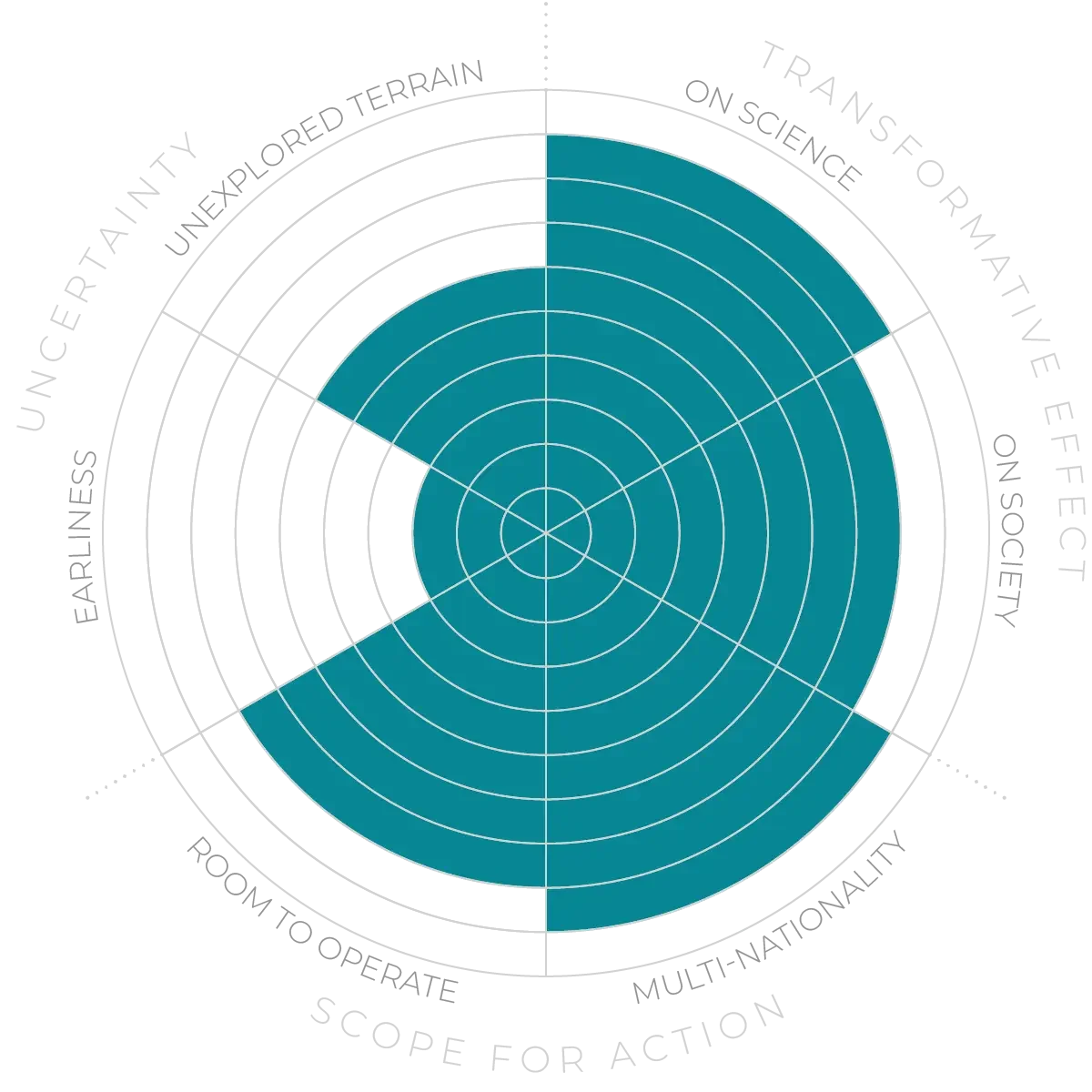Future Horizons:
10-yearhorizon
Supercharging immunomodulation
Synthetic-biology approaches deprogram the immune system. Microfluidic devices, models used to recapitulate tumour complexity, start to decipher the molecular mechanisms driving treatment inefficiencies and to evaluate new targeted immunotherapies. New treatments are developed for a rare disease of the white blood cells that guard against repeat infections and cancer; insights from this development inform new research into the broader immune system.21 AI starts to make links between personal history and autoimmune disorder development.
25-yearhorizon
Immune hacking gets local
Immunotherapy (adding specifically curated receptors to the T-cells of the immune system and others to recognise cancers and other desired targets, commonly referred to as CAR-T cell therapy) has delivered on its early promise against cancer. But it remains more effective for cancers like leukaemia, lymphoma and melanoma than for inaccessible and immunosuppressive solid tumours. Even for non-solid cancers, CAR-T can fail or induce cytokine toxicity. Lentiviral vectors, derived from the HIV-1 retrovirus, are showing promise to deliver gene editors to tumours and against other immune disorders.13, 14 Trials are also now beginning for cancer vaccines in England15 and the US. These work by stimulating a patient’s immune system to recognise and destroy any remaining cancer cells — and stop their reappearance.16
Immunotherapy is not just being investigated for cancer, however. For people with gene errors predisposing them to immune dysfunction, gene editing techniques show promise to precisely correct T-cells wrongly targeting the body’s own healthy cells. CAR techniques being used against multiple sclerosis17 as well as myasthenia gravis18, stiff person syndrome19 and even intractable lupus20 are showing promising early results, along with strategies against other autoimmune disorders.
However, all of this is fighting against symptoms. A future medical approach to address the underlying cause of immune-system dysregulation will require a more precise understanding of the triggers for autoimmune disease.
Hacking immunity - Anticipation Scores
The Anticipation Potential of a research field is determined by the capacity for impactful action in the present, considering possible future transformative breakthroughs in a field over a 25-year outlook. A field with a high Anticipation Potential, therefore, combines the potential range of future transformative possibilities engendered by a research area with a wide field of opportunities for action in the present. We asked researchers in the field to anticipate:
- The uncertainty related to future science breakthroughs in the field
- The transformative effect anticipated breakthroughs may have on research and society
- The scope for action in the present in relation to anticipated breakthroughs.
This chart represents a summary of their responses to each of these elements, which when combined, provide the Anticipation Potential for the topic. See methodology for more information.



